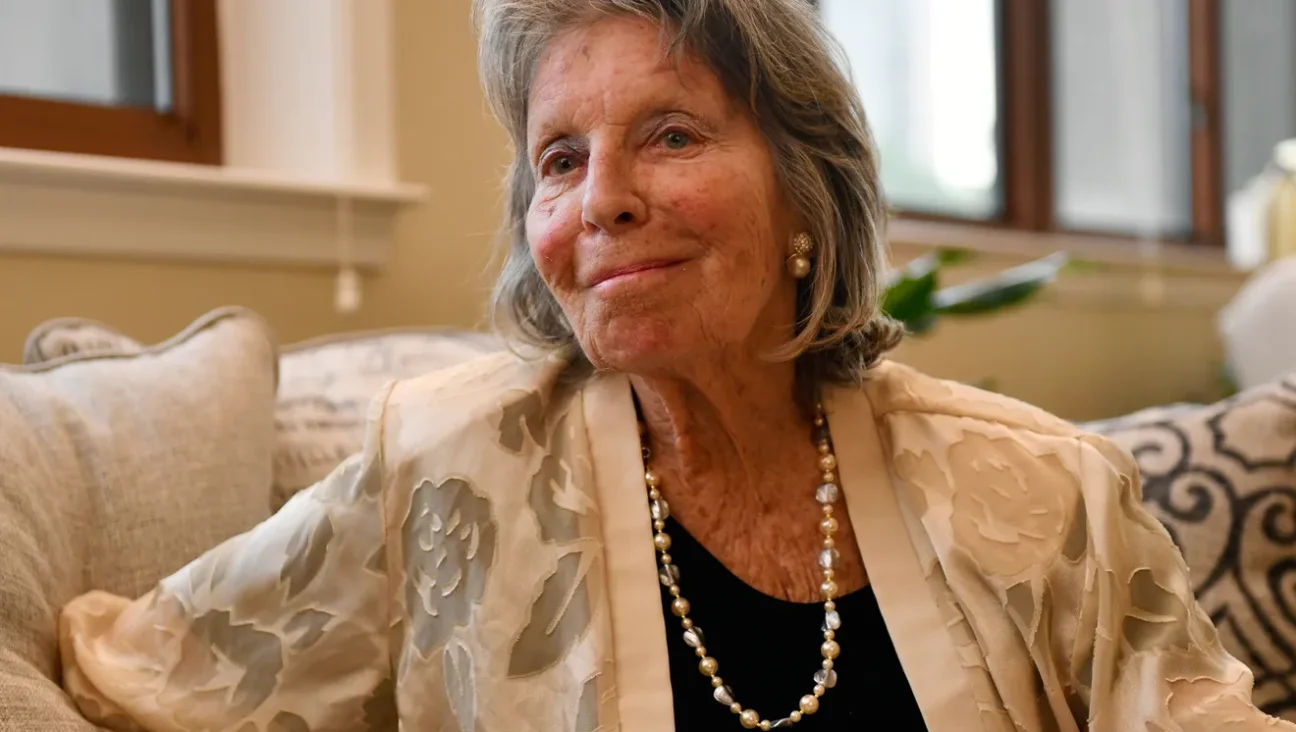US, Egypt Discuss Reviving Mideast Peace Talks While Netanyahu Appoints Hard-Line Minister

John Kerry (L) shakes hands with Abdel Fattah al-Sissi, during a meeting at the defense ministry in Cairo on March 3, 2013. Image by Getty Images
U.S. Secretary of State John Kerry met with Egyptian President Abdel Fatah el-Sissi to discuss how to revive Israeli-Palestinian negotiations, along with other shared concerns.
Meeting in Cairo Wednesday, Kerry “expressed his appreciation for [Sissi’s] recent statement of strong support for advancing Arab-Israeli peace,” State Department spokesman Mark Toner said in a statement, according to The Associated Press.
The statement did not provide details on any specific peace efforts under discussion, although on Tuesday Sissi expressed support for a French initiative to jump-start negotiations, an initiative Israel has opposed. Also not clear is whether Israeli Prime Minister Benjamin Netanyahu’s appointment Wednesday of far-right politician Avigdor Liberman as foreign minister will affect Egypt’s support for promoting Israeli-Palestinian peace talks.
Sissi said Tuesday that Egypt would “make every effort” toward a solution. His announcement came hours after French President Francois Hollande said a summit of representatives of 20 countries that had been scheduled for May 30 would be postponed because Kerry cannot attend.
Describing the French initiative as a “real opportunity,” Sissi called on the sides to “please, reach an agreement so a solution can be found.”
In a statement of response issued Tuesday, Netanyahu thanked Sissi and said, “Israel is ready to participate with Egypt and other Arab states in advancing both the diplomatic process and stability in the region. I appreciate President el-Sissi’s work and also draw encouragement from his leadership on this important issue.”
It is not clear how Liberman’s ascent to the Foreign Ministry — part of a restructuring in the Israeli governing coalition — will affect discussions with Egypt.

Benjamin Netanyahu waves to supporters with Avigdor Liberman at his election campaign headquarters on Janurary 23, 2013 in Tel Aviv, Israel. Image by Getty Images
Liberman, of the hard-line nationalist Yisrael Beiteinu party, served as foreign minister from 2009-2015.
Netanyahu had sought Liberman as a partner since after the most recent elections in March 2015. But Liberman had criticized Netanyahu harshly over what he saw as his tepid conduct of the 2014 Gaza war. As coalition negotiations ended last year, Liberman chose to sit in the Knesset opposition, claiming the new government would not abide his hawkish principles.
Netanyahu had engaged in increasingly serious talks recently with the rival Labor Party. Labor chairman Isaac Herzog, whose poll numbers have only fallen since the 2015 elections, appeared eager to join the government. He hoped to serve as foreign minister and push Israel toward renewed negotiations with the Palestinian Authority.
“Today is the day he gave up on the chance to lead a great change in our future,” Herzog said of Netanyahu in a Wednesday night news conference. “We will not give the crazy government of Liberman and [Education Minister Naftali] Bennett a day of silence. I will unite all the forces to turn their lives into a nightmare until we replace them.”
Liberman’s appointment will mean the ouster of the current defense minister, Moshe Yaalon, who had attempted to be a voice for moderation against critics to the government’s right.
Yaalon drew verbal fire from far-right activists after criticizing the soldier who killed an immobilized terrorist in Hebron in March. This month, he and Netanyahu clashed after Yaalon defended Israel Defense Forces Chief of Staff Yair Golan, who in a Holocaust Remembrance Day speech compared aspects of Israeli society to trends that occurred in 1930s Germany.
The pro-settler Jewish Home party, another coalition member, cheered Yaalon’s exit, approvingly calling the imminent government “the most right-wing ever in Israel.”
“Bogie is leaving, and that’s good,” Jewish Home said in a statement Wednesday, using Yaalon’s nickname, according to Israeli media reports. “This was a year of tremendous damage to the IDF. A year of abandoning soldiers, a year of a horrible culture in the army. Bogie needs to go home, and he’s going.”
A message from our Publisher & CEO Rachel Fishman Feddersen

I hope you appreciated this article. Before you go, I’d like to ask you to please support the Forward’s award-winning, nonprofit journalism so that we can be prepared for whatever news 2025 brings.
At a time when other newsrooms are closing or cutting back, the Forward has removed its paywall and invested additional resources to report on the ground from Israel and around the U.S. on the impact of the war, rising antisemitism and polarized discourse.
Readers like you make it all possible. Support our work by becoming a Forward Member and connect with our journalism and your community.
— Rachel Fishman Feddersen, Publisher and CEO























